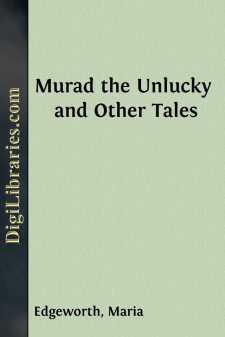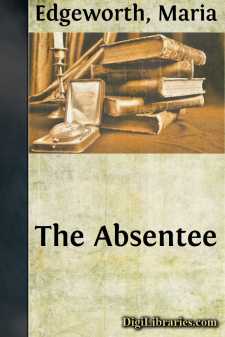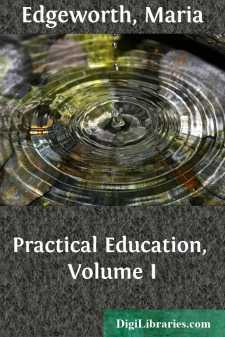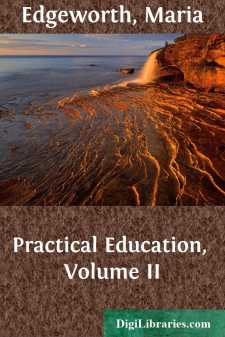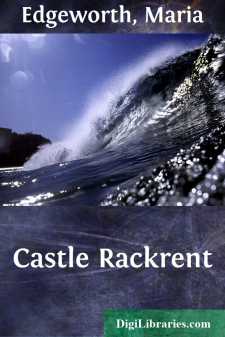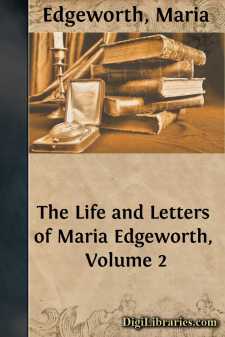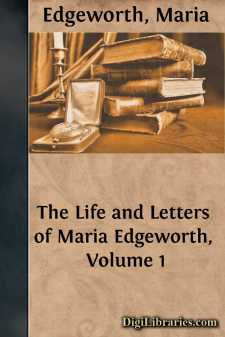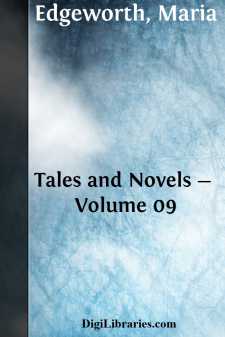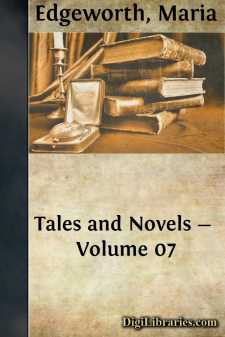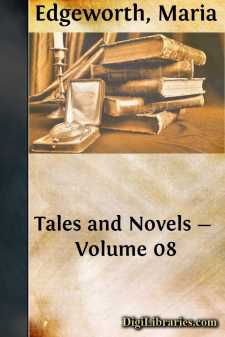Categories
- Antiques & Collectibles 13
- Architecture 36
- Art 48
- Bibles 22
- Biography & Autobiography 813
- Body, Mind & Spirit 142
- Business & Economics 28
- Children's Books 17
- Children's Fiction 14
- Computers 4
- Cooking 94
- Crafts & Hobbies 4
- Drama 346
- Education 46
- Family & Relationships 57
- Fiction 11829
- Games 19
- Gardening 17
- Health & Fitness 34
- History 1377
- House & Home 1
- Humor 147
- Juvenile Fiction 1873
- Juvenile Nonfiction 202
- Language Arts & Disciplines 88
- Law 16
- Literary Collections 686
- Literary Criticism 179
- Mathematics 13
- Medical 41
- Music 40
- Nature 179
- Non-Classifiable 1768
- Performing Arts 7
- Periodicals 1453
- Philosophy 64
- Photography 2
- Poetry 896
- Political Science 203
- Psychology 42
- Reference 154
- Religion 513
- Science 126
- Self-Help 84
- Social Science 81
- Sports & Recreation 34
- Study Aids 3
- Technology & Engineering 59
- Transportation 23
- Travel 463
- True Crime 29
Maria Edgeworth
Maria Edgeworth (1768–1849) was an Anglo-Irish novelist known for her pioneering work in children's literature and her keen social and political commentaries. Her notable works include "Castle Rackrent" (1800), a satirical novel often regarded as the first historical novel, and "Belinda" (1801), which challenged contemporary views on women's roles. Edgeworth's writing significantly influenced the development of the novel in the 19th century and provided critical insights into Irish society and British colonialism.
Author's Books:
Sort by:
by:
Maria Edgeworth
INTRODUCTION Maria Edgeworth came of a lively family which had settled in Ireland in the latter part of the sixteenth century. Her father at the age of five-and-twenty inherited the family estates at Edgeworthstown in 1769. He had snatched an early marriage, which did not prove happy. He had a little son, whom he was educating upon the principles set forth in Rousseau’s “Emile,” and a...
more...
by:
Maria Edgeworth
CHAPTER I 'Are you to be at Lady Clonbrony's gala next week?' said Lady Langdale to Mrs. Dareville, whilst they were waiting for their carriages in the crush-room of the opera house. 'Oh yes! everybody's to be there, I hear,' replied Mrs. Dareville. 'Your ladyship, of course?' 'Why, I don't know—if I possibly can. Lady Clonbrony makes it such a point...
more...
by:
Maria Edgeworth
PREFACE. We shall not imitate the invidious example of some authors, who think it necessary to destroy the edifices of others, in order to clear the way for their own. We have no peculiar system to support, and, consequently, we have no temptation to attack the theories of others; and we have chosen the title of Practical Education, to point out that we rely entirely upon practice and experience. To...
more...
by:
Maria Edgeworth
ON GRAMMAR, AND CLASSICAL LITERATURE. As long as gentlemen feel a deficiency in their own education, when they have not a competent knowledge of the learned languages, so long must a parent be anxious, that his son should not be exposed to the mortification of appearing inferiour to others of his own rank. It is in vain to urge, that language is only the key to science; that the names of things are not...
more...
by:
Maria Edgeworth
INTRODUCTIONIThe story of the Edgeworth Family, if it were properly told, should be as long as the ARABIAN NIGHTS themselves; the thousand and one cheerful intelligent members of the circle, the amusing friends and relations, the charming surroundings, the cheerful hospitable home, all go to make up an almost unique history of a county family of great parts and no little character. The Edgeworths were...
more...
by:
Maria Edgeworth
I am sure that you have heard of us, and of all we have done and seen from Edgeworthstown as far as Berne: from thence we went to Thun: there we took char-à-bancs, little low carriages, like half an Irish jaunting car, with four wheels, and a square tarpaulin awning over our heads. Jolting along on these vehicles, which would go over a house, I am sure, without being overturned or without being...
more...
by:
Maria Edgeworth
MARIA EDGEWORTH In the flats of the featureless county of Longford stands the large and handsome but unpretentious house of Edgeworthstown. The scenery here has few natural attractions, but the loving care of several generations has gradually beautified the surroundings of the house, and few homes have been more valued or more the centre round which a large family circle has gathered in unusual...
more...
by:
Maria Edgeworth
CHAPTER I. When I was a little boy of about six years old, I was standing with a maid-servant in the balcony of one of the upper rooms of my father's house in London—it was the evening of the first day that I had ever been in London, and my senses had been excited, and almost exhausted, by the vast variety of objects that were new to me. It was dusk, and I was growing sleepy, but my attention...
more...
by:
Maria Edgeworth
CHAPTER I. "How the wind is rising!" said Rosamond.—"God help the poor people at sea to-night!" Her brother Godfrey smiled.—"One would think," said he, "that she had an argosy of lovers at sea, uninsured." "You gentlemen," replied Rosamond, "imagine that ladies are always thinking of lovers." "Not always," said Godfrey; "only when they...
more...
by:
Maria Edgeworth
CHAPTER XXXVI. No less an event than Alfred's marriage, no event calling less imperatively upon her feelings, could have recovered Lady Jane's sympathy for Caroline. But Alfred Percy, who had been the restorer of her fortune, her friend in adversity, what pain it would give him to find her, at the moment when he might expect her congratulations, quarrelling with his sister—that sister, too,...
more...


